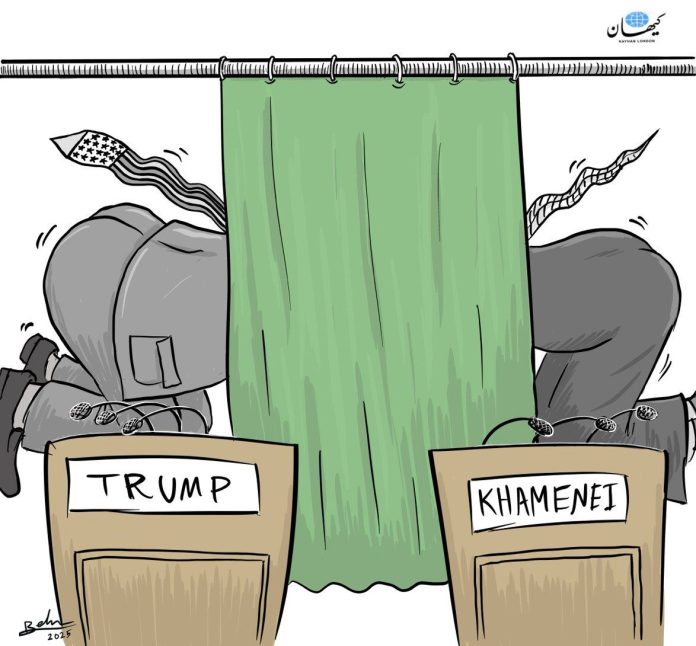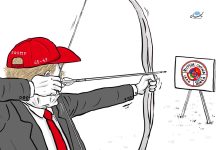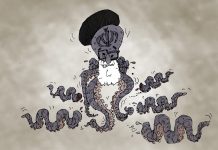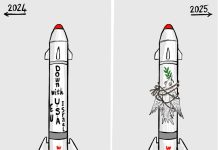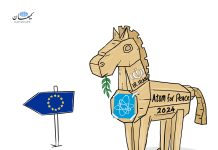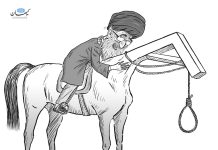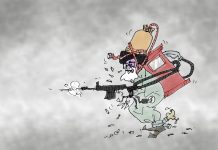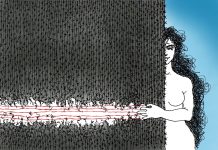Artist: Behnam Mohammadi
By Kayhan Life Staff
This week, the possibility of a shift in US-Iran relations came under the spotlight. Iran’s theocratic leader, Ali Khamenei, appeared to endorse talks with the US, while President Donald Trump seemed optimistic at the possibility of discussions with Tehran. However, Prince Reza Pahlavi argued that only a change in Iran’s regime could reshape the course of the Middle East, paving the way for lasting peace and prosperity.
Iran is grappling with a deepening economic crisis, societal unrest, and the loss of significant influence in the Middle East. Compounding these is the looming threat of a snapback of international sanctions due to the regime’s advancing nuclear program. Many officials, including President Masoud Pezeshkian and Vice President for Strategic Affairs Mohammad Javad Zarif, have been pushing for talks with the US.
President Trump has also been sending encouraging signals to Tehran. Last week, he expressed optimism that a deal on Iran’s nuclear program could avert the need for a US-supported Israeli attack on Iran. Furthermore, in an unprecedented move, the US abstained from condemning Iran’s regime for its human rights violations during a recent UN rights review, likely to have been a conscious decision by the White House to pave the way for discussions with Iran.
Offering a counterpoint to this optimism was Prince Reza Pahlavi, who cautioned the US about trusting Iran’s regime in negotiations at a National Press Club event in Washington, DC. He highlighted that as Khamenei’s regime finds itself in a weaker position, it may shift its rhetoric from jihad and chaos to pragmatism and deal-making to secure a new agreement with the United States. However, any such deal could empower it to rebuild its proxy networks.
The Prince also outlined his plan for changing the regime through promoting defections, grassroots mobilization, and international pressure. He said that the US faced a critical choice: leverage its power for lasting peace or bolster Iran’s radical regime through engagement.

